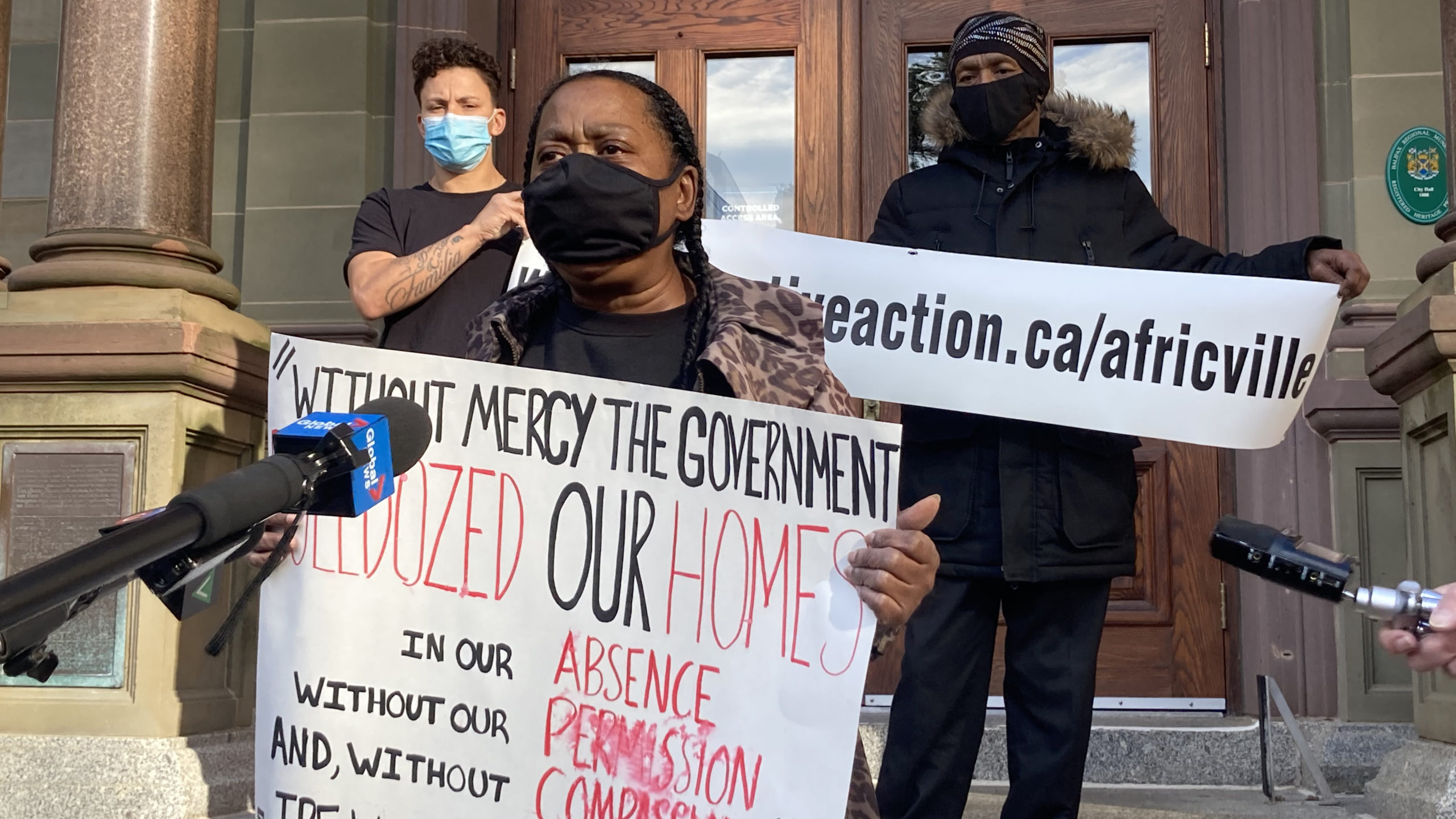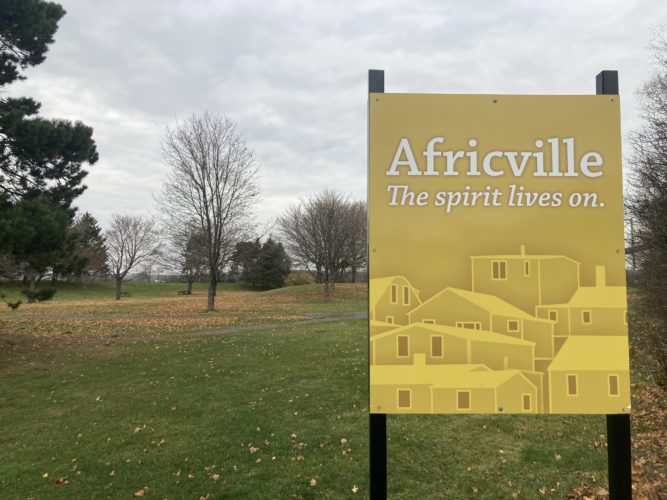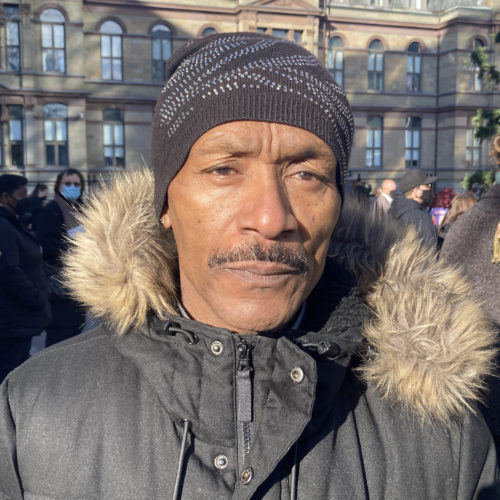Former Africville residents rally for reparations outside Halifax City Hall
'If we wait for justice, most of us will be dead,' says Denise Allen

caption
Denise Allen stands on the steps of Halifax City Hall demanding justice for former Africville residents.Denise Allen spent her childhood in Africville. She said her great-grandmother, Sarah Mantley, had four homes on her property in the predominantly Black village that sat where Halifax’s northern tip meets the Bedford Basin.
In the early 1960s, Allen said, the city offered Mantley $12,000 for her land. Like many Africville residents, she refused. She wanted to stay. Allen said her great-grandmother came home one day to find everything on her property had been bulldozed.
“She had no choice but to leave because she had no place to go,” Allen said. “She was left without anything. That’s how [Halifax] treated the homeowners in Africville.”
Allen is one of dozens of former Africville residents and family members trying to file a class-action lawsuit against Halifax. She organized a rally at city hall on Saturday afternoon, where a crowd of more than 100 people called on the municipal, provincial and federal governments to pay reparations to former residents of Africville and their descendants. Related stories
Advocates continue to push for reparations for African Nova Scotians
“If we just wait for justice, most of us will be dead,” Allen said.

caption
Africville, a once vibrant and self-sustaining community, is now a dog park.Destroying Africville
In 1964, Halifax city council voted to appropriate Africville, a vibrant self-sustaining community that existed for over 150 years. The decision followed decades of neglect. While infrastructure was built in the rest of the city, residents of Africville struggled to access electricity and running water.
The city developed industry nearby and relocated landfills to sit beside the Black community. The conditions worsened until finally Halifax pushed all homeowners and families out of the area by 1970.
In 2010, the mayor of Halifax issued an official apology for the city’s treatment of Africville and its residents. The municipality spent $3 million to build a replica of the community’s historic church.
Many residents opposed the decision at the time and continue to argue they should be allowed to decide how the land is to be used.

caption
John Carvery lived in Africville until the age of 11.“If Black lives truly matter now, shouldn’t [the city] reimburse us?” Allen said. “The people of Africville are worse off today than when they were in Africville.”
John Carvery said he lived in Africville until the age of 11. At 65, he cannot believe residents still don’t have justice. Now receiving Old Age Security pension payments, Carvery thought he’d be compensated by the government long before this point.
“That’s a slap in the face,” he said at the rally Saturday.
Carvery lived in Calgary for most of his adult life but returned home last year. At first, he says it made him happy to be back around family. That’s changed. “The longer I’m here, the more tension I feel.”
Allen said two attempts at a class-action lawsuit have been unsuccessful, and their lawyers are reviewing feedback from Nova Scotia Supreme Court Justice Patrick Duncan before filing another application.
A 2017 United Nations report recommended Canada apologize and consider providing reparations to African Canadians for enslavement and historical injustices.
Allen feels the people of Africville should not have to fight long court battles that will take significant time and money. She wants the government to settle.
Until then, Allen said, she and surviving Africville residents will continue to demonstrate.

